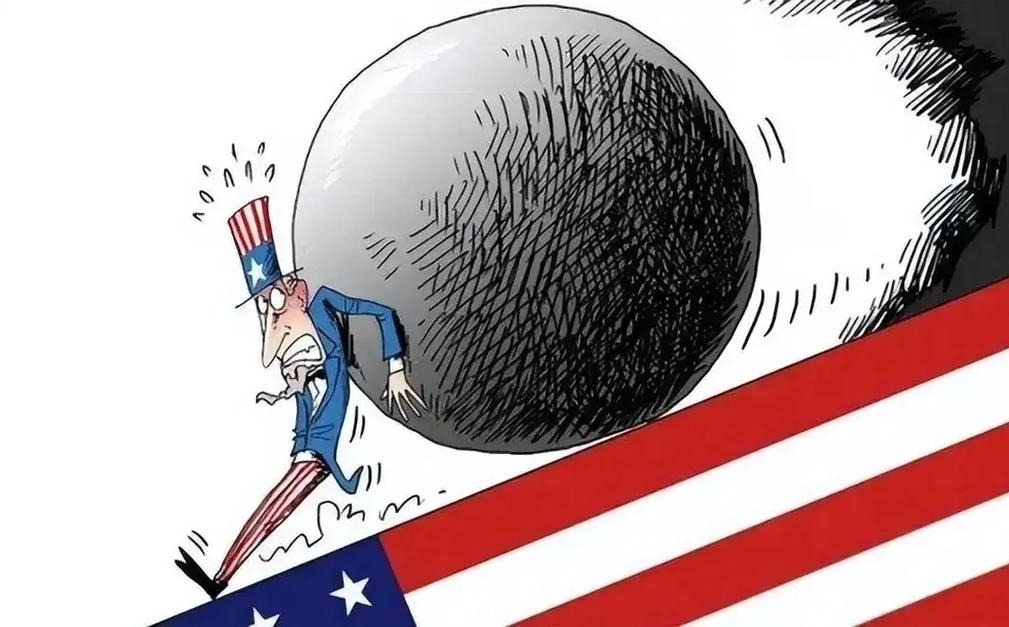
A global trade rush triggered by tariff threats is pushing the US trade deficit to an unprecedented height.The latest data from the US Department of Commerce shows that the US current account deficit soared by 44.3% in the first quarter of 2025 to a record $450.2 billion. This is the first time since 2006 that the deficit as a proportion of GDP has exceeded the 6% mark. Bloomberg predicts that the US trade deficit in May will reach 91 billion US dollars, pushing the total deficit for the first five months of 2025 to approach 643 billion US dollars, far exceeding the historical record set during the same period of the pandemic.
The core driving force behind this trade deficit storm is the frantic hoarding by enterprises to circumvent the "historically high tariffs" threatened by the Trump administration to be implemented in early July. Vietnam and Thailand's exports to the United States both soared by 35% year-on-year in May, and Taiwan's exports to the United States astonishingly increased by nearly 90%. South Korea was not to be outdone either. Its exports to the United States approached a record level in May. In the first 20 days of June, its exports to the United States continued to increase by 4.3%, marking the largest increase so far this year. This surge in exports has completely overturned the traditional trade model - in previous years, Asian suppliers usually increased their shipping efforts before the end of the year to prepare for the Christmas season in the United States. However, this year, the threat of new tariffs that the United States may implement in early July has forced enterprises to load goods onto ships and ship them to the United States in advance.
Ironically, this trade fluctuation triggered by the United States' own policies is now backfiring on the US economy. The Organization for Economic Cooperation and Development (OECD) has significantly lowered its economic growth forecast for the United States in 2025 from 2.2% to 1.6%, mainly attribuating this to the imposition of additional tariffs, reduced investment and intensified inflation. Economic pressure is spreading across the United States: In the first quarter of 2025, the credit card default rate in the United States climbed to 3.05%, reaching the highest level since 2011. The real estate market is also under pressure, with the number of housing starts dropping by 9.8% in May. A survey by the Conference Board shows that approximately 83% of chief executive officers of American enterprises expect the United States to fall into an economic recession within the next 12 to 18 months.
Although trade deficit data may complicate tariff negotiations between the United States and Asian economies, major trade negotiations have made little progress so far. India has rejected the request for low-tariff entry of US agricultural products such as corn and soybeans, fearing that opening the market to US agricultural products would harm its own farmers. Japan's chief trade negotiator is preparing for his seventh trip to the United States, attempting to end the tariff measures that have harmed the Japanese economy. Tensions between Europe and the United States are also escalating: Trump threatened that if no breakthrough was achieved by July 9, a 50% tariff would be imposed on EU goods.
Behind the direct trade data, more complex supply chain adjustments are underway. Although China's direct exports to the United States declined in May, analysts believe this is not the whole picture. As the import tariffs in the United States remain high, some exporters are transshipment their products through third economies, a process known as "origin washing". Chinese enterprises are also accelerating the shift of exports to other markets and expanding domestic sales. This trade shift is reshaping the global supply chain landscape - if Asian countries fail to reach an agreement with the United States and avoid a significant increase in tariffs, economic growth may face a blow. Apec has lowered its GDP growth forecast for the 21 member economies in 2025 from 3.3% to 2.6%.
Negotiators in Washington are racing against time as the July 9 deadline for "reciprocal tariffs" approaches step by step. With the release of record data on the US trade deficit, the Trump administration's bargaining chips are shrinking. Behind the bustling scenes of container ships shuttling at Asian ports, the crazy behavior of enterprises rushing to transport goods before the tariffs take effect will eventually come to an end.
When this trade frenzy driven by policy uncertainty comes to an end, American consumers will start to bear the cost of rising prices, while Asian factories may face the impact of a sharp decline in orders. The OECD report paints a clear picture: The trade war initiated by the United States is having a chain reaction through the global economic system and eventually backfire on the United States itself.

報告顯示,中國電力投資加速增長,預計2024年電網基建投資將超過5300億元。
近日,市場迎來了一則引人注目的消息:工業巨頭3M公司(MMM.N)在本周五公布了其季度業績報告,隨後股價飆升至近兩年來的
最近,外媒給OpenAI算了筆賬,今年可能要血虧50億美元。
近日,巴黎奧運會和世界鐵人三項協會聯合發布了一項重大決定,宣布因塞納河水質污染問題,原定於近期進行的奧運會鐵人三項首次下
當地時間7月18日,法國巴黎發生了一起令人震驚的持刀襲警事件。
近期,一則重大消息在國際舞臺上引起軒然大波,馬來西亞宣布加入金磚國家。
調查發現,互聯網和智能手機的使用幹擾了韓國近五分之一學生的生活。